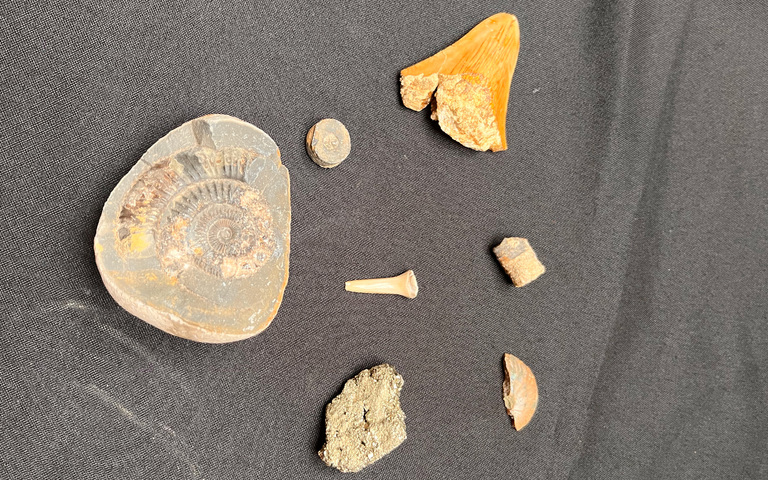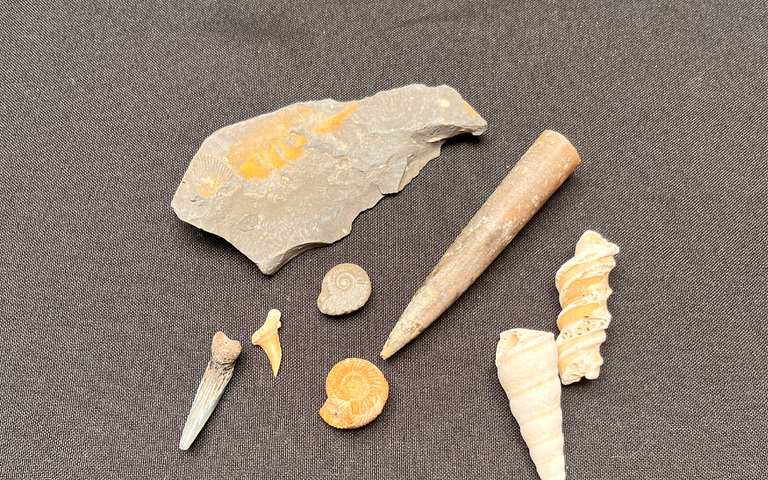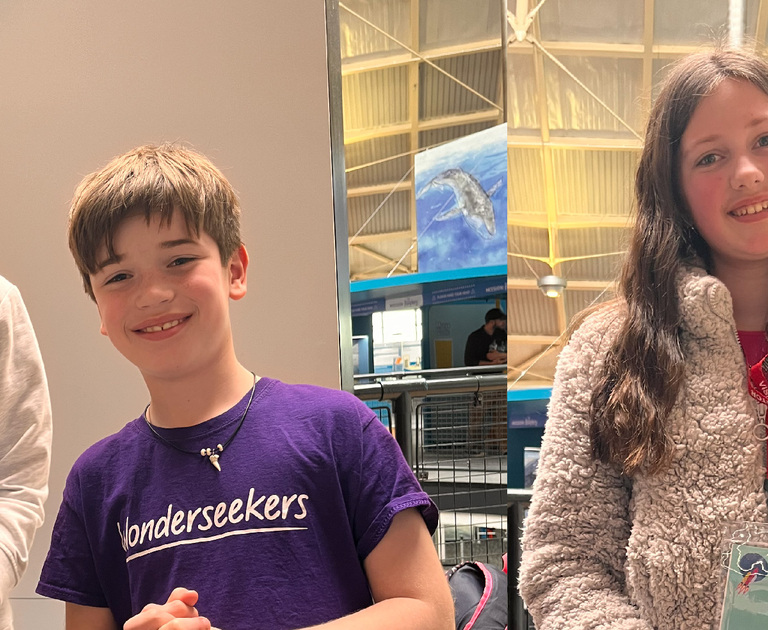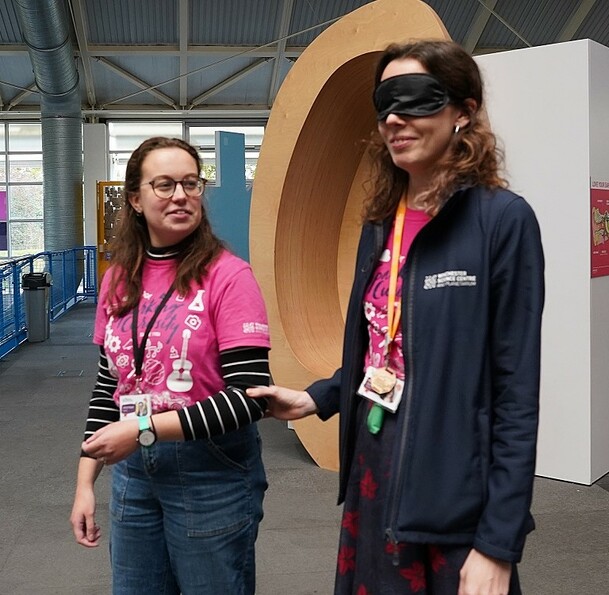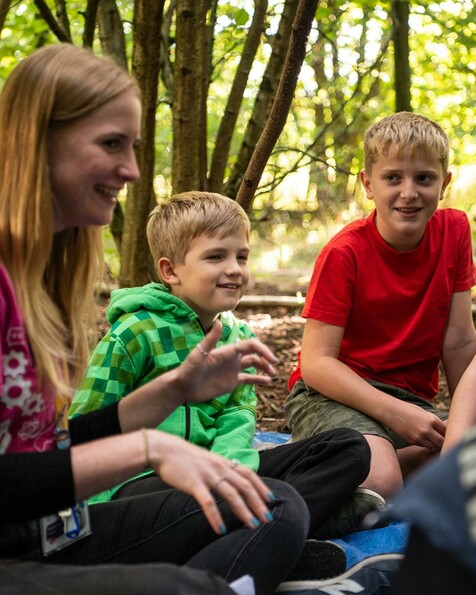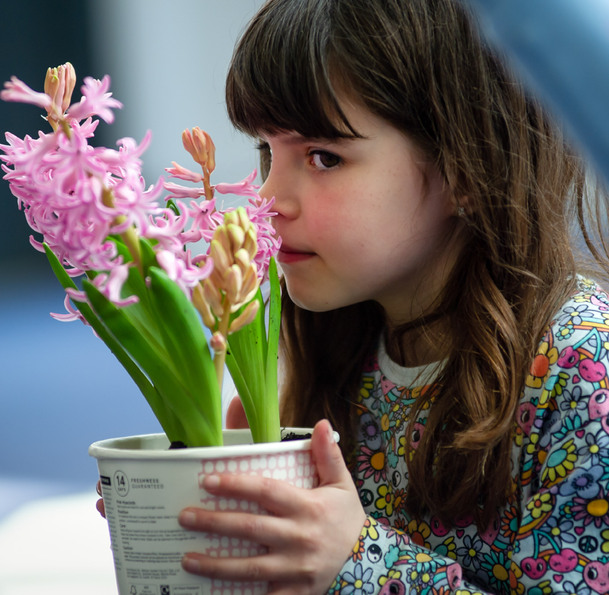For the first time ever Winchester Science Centre hosted an event for children, by children. Science Explained: The Science of Jurassic Park, saw three members of the Wonderseekers Young Steering Group stand alongside experts to engage and educate members of the public. We hope this will be the first of many events driven by our Charity’s mission to empower children to inspire others through science.
On Friday, 12th April, dino enthusiasts Jack, Bella, and Bowen took to the stage to share their knowledge and passion for all things prehistoric. Bella and Jack brought along their personal collections of artefacts. Bella’s included fossils, shells, and a shark tooth! Jack’s featured Pyrite (more commonly known as Fools Gold), and a megalodon tooth! Bowen wowed everyone with fascinating dinosaur facts. He explained that in 2018 scientists discovered a T-Rex fossil which indicated that these reptiles may have been bigger than we originally believed! We are not experts, so we fact checked this, and Bowen is right – check out this article from New Scientist to find out more. Children really know their stuff about dinosaurs!
The members of our Young Steering Group were joined by industry experts from the Isle of Wight’s Dinosaur Isle Museum who brought along some real dinosaur artefacts. The evening also saw Dr Neil Gostling, a Palaeobiologist from the University of Southampton, shed some light on the science of dinosaurs that inspired the classic Hollywood blockbuster Jurassic Park. After watching the film in our Planetarium, the evening ended with a Q&A with Dr Gostling. Children had the opportunity to ask the questions that mattered to them which sparked a brilliantly engaging conversation.
Some of the questions were inspired by the film with one child curious about how we know that T-Rexs would survive in a changing environment? Another child noted that frog DNA is used to create dinosaurs in the film and wondered if other reptiles’ DNA could be too. Some children were interested in these creatures generally asking do dinosaurs have blindness or deafness? And how can scientists prove how fast dinosaurs can run?
The event was a great showcase of how children can explore interesting yet complex topics such as dinosaurs and palaeontology. By having other children explain scientific topics, we hope that other children find the subject more engaging, relatable, and relevant to their everyday life experiences.
Discover more about our fantastic Young Steering Group here.
This event was part of Science Explained, a series of events at Winchester Science Centre. Every Science Explained event is different, with each one exploring a fascinating science question. Have you ever wondered if aliens are real? Or if time travel really does exist? With the help of experts, your curiosity will find some answers. To find out more about our next Science Explained event, please visit the What’s On page on the Winchester Science Centre website.
